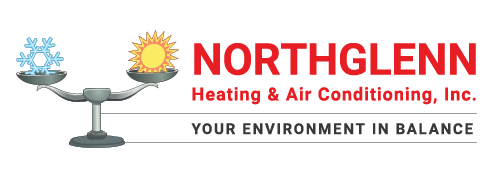
Ever done a double take when you checked your last energy bill? While high energy bills can be the result of severe weather events, repeatedly high bills can quickly signify an inefficient HVAC system or your home is using too much energy because of other means, including drafty windows or poor insulation.
An easy way to figure out whether your home is consuming too much energy is by getting a home service expert to carry out a home energy audit, also referred to as a home energy assessment. Keep reading to find out more about home energy audits, including what they are and their advantages.
What Is a Home Energy Audit?
An energy audit is a custom inspection of how much energy your home uses and whether – and where – your home could be losing or wasting energy. An inspector will go through previous energy bills during an energy audit to find out where energy is being consumed and how much.
The general goal of an energy audit is to help homeowners save money on their energy bills by identifying energy-efficient renovations, which may include exchanging your current HVAC system, putting in new insulation, closing up leaks, or replacing old windows.
Over the course of the energy assessment, the auditor carries out an inspection of the outside and inside of your home. The auditor performs a blower door test on doorways, windows and fireplaces to find out if there are air leaks in your home. They’ll also check your home’s HVAC system, as well as the ductwork, the water heater, and the insulation in your attic. Comprehensive assessments might also include reviewing your current lighting system.
Benefits of a Home Energy Audit
It can be hard for the average homeowner to know for certain how efficient their home is versus other similar homes in their area. However, local energy companies often supply information about where your home is ranked in comparison to similar homes and whether it’s more efficient, about average, or inefficient in contrast with your neighbors’ homes. This is a great starting point to determine if you need an energy audit performed.
A few of the benefits of a home energy audit include:
Learning How Efficient Your Home Is
It’s good to understand how efficient your home is and where you’re using up the most energy. For example, if your ducts are leaking, it could result in a large increase in your energy bills and additional wear and tear on your HVAC system since it has to run longer to completely heat or cool your home.
Making Energy-Efficient Upgrades
An energy audit should outline where you need to make energy-efficient improvements to conserve energy and reduce utility bills. This might include replacing worn weatherstripping or installing a new energy-efficient furnace.
Enhancing Health and Safety
Allowing air to seep into your home via doors and windows, or because of a lack of insulation can cause extra moisture to appear, which can negatively impact your home’s humidity levels or produce mold. This can exacerbate health issues, especially for people who have asthma or allergies.
Adding to Your Home’s Retail Value
Energy-efficient homes are preferred by homebuyers. You can sell your home sooner or for more money by telling potential buyers that it’s energy efficient.
How to Perform an Energy Audit of Your Home
Although completing an energy audit independently may not be as thorough as calling a professional, it’ll offer you a general sense of how energy efficient your home is. If you don’t discover any problems during the DIY test, then you probably don’t need to hire a professional. Follow this step-by-step checklist:
- Examine your HVAC system. Leaky ducts can lose nearly 20% of conditioned air, contributing to more expensive energy bills and excess strain on HVAC equipment. If you discover leaks, use duct tape to seal them. If your HVAC equipment is old and inefficient, upgrading to a new system can save you a considerable amount on your energy bills. In some cases, it might be better to hire a reputable HVAC company to inspect your system.
- Look for air leaks. Air leaks on average can raise the energy bills by 10 to 20%. Inside, look for air leaks in areas where there could be a draft, including along the edge of flooring and close to baseboards and electrical outlets. Outside, you can look for air leaks along the home’s foundation, siding and mortar. Plug, caulk or seal any air leaks to save money.
- Examine insulation. If your home is older, it could mean your insulation is too. If you can see the joists, you likely need more insulation.
- Check the ventilation. Ensure that all of your kitchen and bathroom exhaust fans are spinning properly, and check for evidence of rot or moisture.
Contact Northglenn Heating & Air Conditioning for a Professional Energy Audit
If you are interested in professional help determining how energy efficient your heating and cooling equipment is, contact the HVAC pros at Northglenn Heating & Air Conditioning today. We’ve proudly supported the residents of Northglenn with quality home services for years. Contact us today to set up an appointment.
